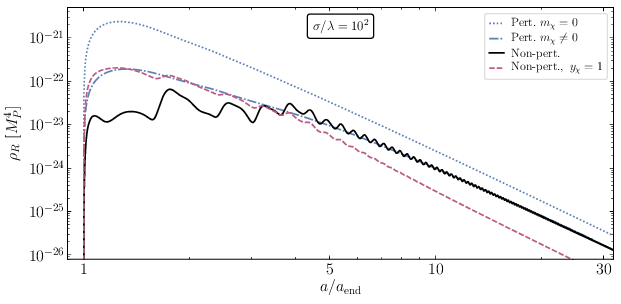| Article | |
| Report number | arXiv:2109.13280 ; UMN-TH-4101/21 ; FTPI-MINN-21/19 ; CERN-TH-2021-121 |
| Title | Freeze-in from Preheating |
| Author(s) | Garcia, Marcos A.G. (Madrid, IFT ; Madrid, Autonoma U. ; INFN, Padua ; U. Padua (main)) ; Kaneta, Kunio (Tokyo Woman's Christian U.) ; Mambrini, Yann (IJCLab, Orsay ; CERN) ; Olive, Keith A. (Minnesota U., Theor. Phys. Inst.) ; Verner, Sarunas (Minnesota U., Theor. Phys. Inst.) |
| Publication | 2022-03-08 |
| Imprint | 2021-09-27 |
| Number of pages | 39 |
| Note | 39 pages, 13 figures |
| In: | JCAP 2203 (2022) 016 |
| DOI | 10.1088/1475-7516/2022/03/016 |
| Subject category | astro-ph.CO ; Astrophysics and Astronomy ; hep-ph ; Particle Physics - Phenomenology |
| Abstract | We consider the production of dark matter during the process of reheating after inflation. The relic density of dark matter from freeze-in depends on both the energy density and energy distribution of the inflaton scattering or decay products composing the radiation bath. We compare the perturbative and non-perturbative calculations of the energy density in radiation. We also consider the (likely) possibility that the final state scalar products are unstable. Assuming either thermal or non-thermal energy distribution functions, we compare the resulting relic density based on these different approaches. We show that the present-day cold dark matter density can be obtained through freeze-in from preheating for a large range of dark matter masses. |
| Copyright/License | preprint: (License: arXiv nonexclusive-distrib 1.0) publication: © 2022-2025 IOP Publishing Ltd and Sissa Medialab |
Corresponding record in: Inspire
Datensatz erzeugt am 2021-09-30, letzte Änderung am 2024-08-09


